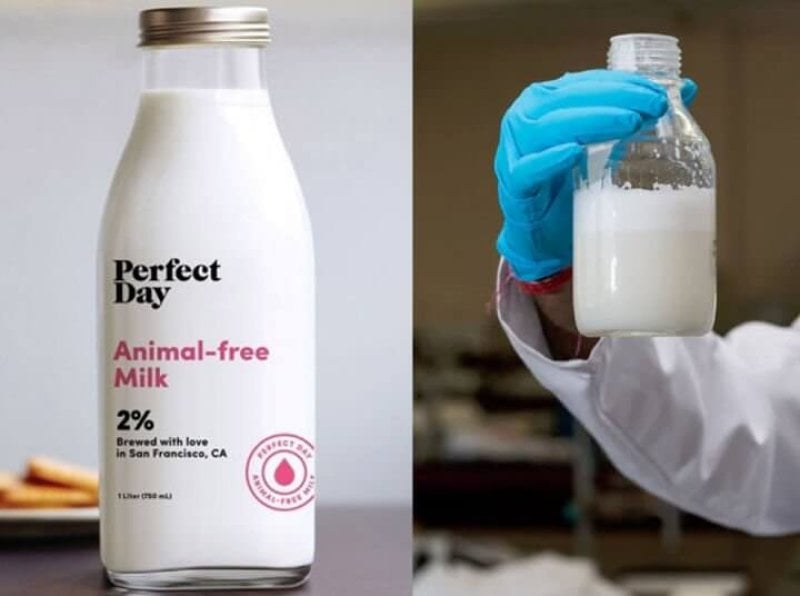[S]cientists are figuring out how to make animal protein without using any animal cells at all – by using fermentation. As journalist Larissa Zimberoff notes in her new book Technically Food, “We don’t have to look far to find examples of it in the food we eat,” such as rennet in cheesemaking—an enzyme used to coagulate milk, which we used to get from the stomach lining of young calves.
Fermentation is a centuries-old process that uses microbes, such as yeast or fungi, to break down a compound, such as sugar, and create a by-product, like alcohol – or, in this case, protein.
Combining various fermentation techniques with modern technology is enabling biotech companies to create proteins that rival those in animal products. And they are poised to seriously challenge the industrial meat, egg, and dairy industries.
“We gave our microflora the genetic ‘blueprint’ from the genes we accessed online, providing it the ability to produce real milk proteins — identical to the ones found in cows’ milk,” says bioengineer Ryan Pandya, Perfect Day’s chief executive and cofounder.
This flora then grazes on plant-based inputs, like sugar, and naturally produces milk proteins that are free from lactose, cholesterol, hormones and antibiotics.































